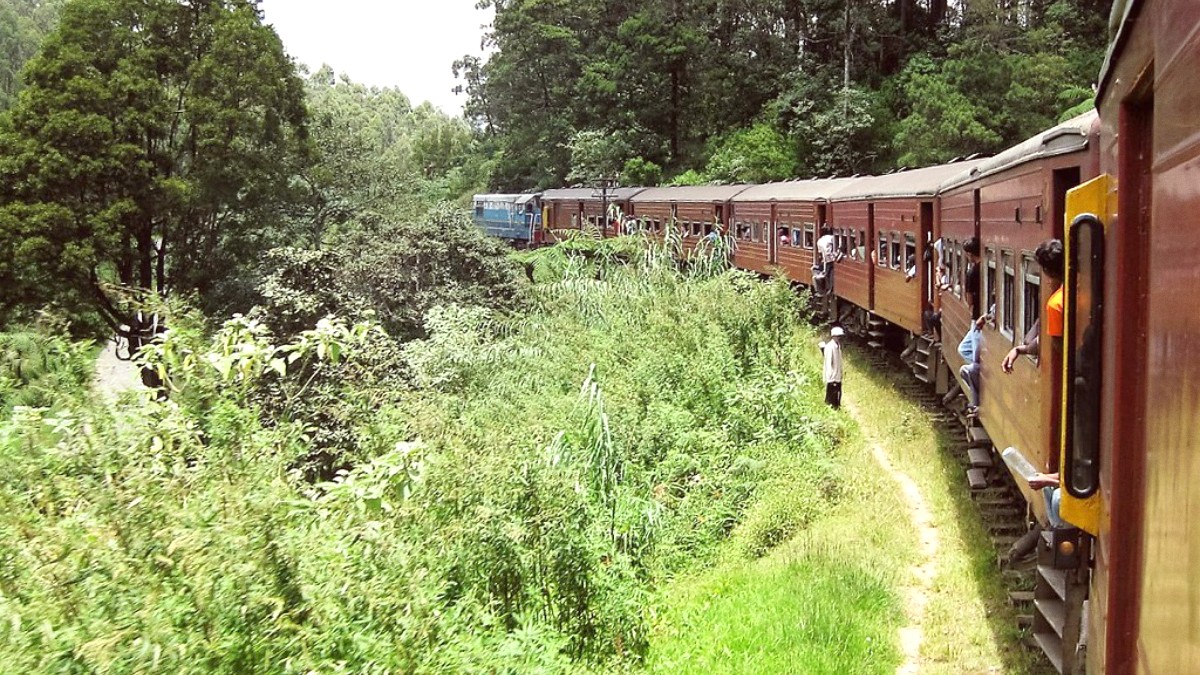
The Hill Country, Sri Lanka
Sri Lankan cuisine draws from Indian, Portuguese, Dutch, and British colonial traditions. Rice and curry is a staple, showing the island's agricultural bounty.
The cool climate in Nuwara Eliya suits growing various vegetables, which are prominent in local dishes. British influence is present in bakeries, cafes, and "tea time."
Many locals eat with their right hand. Cutlery is always available for tourists. Wash hands before and after meals.
Breakfast is often substantial. Lunch is typically the main meal with rice and curry. Dinner can be lighter. Tea Time is a significant tradition.
Tipping is customary. Consult section 2.3 for detailed expectations.
The national dish, a portion of rice with 4-7 different curries (vegetable, meat, sambols, papadum).
Found at nearly all local eateries and hotel restaurants.
Shredded flatbread stir-fried with vegetables, eggs, and choice of meat. A popular street food.
Search for kottu at local eateries and roadside stalls.
Bowl-shaped rice flour pancakes (Hoppers) or steamed noodle-like cakes (String Hoppers).
Eaten for breakfast or dinner, often with dhal and pol sambol.
Roti is a versatile flatbread, plain or stuffed. Vadai are savory lentil fritters.
Short Eats are savory snacks. Watalappan is a steamed coconut custard pudding.
Found mainly within luxury hotels (e.g., The Grand Hotel, Jetwing St. Andrew's). These offer refined Sri Lankan cuisine, often with an international twist, in elegant settings.
A range of mid-range restaurants serve both tourists and locals. Budget eateries and street food stalls are for authentic, affordable meals.
The Nuwara Eliya Public Market offers fresh produce. International dining (Chinese, Indian, Western) is mainly in hotels or mid-range venues.
Sri Lanka is very vegetarian-friendly with many plant-based curries. Many are naturally vegan, using coconut milk.
Specify "no meat, no fish, no egg" for vegan meals.
Halal food is widely available due to a Muslim population. Kosher options are very limited; self-catering may be needed.
Specialized tourist places in Colombo may have some kosher options.
Rice and curry is naturally gluten-free.
Inform restaurants about any allergies. Cross-contamination can occur.
Use Google Translate (offline packs).
Speak with hotel staff, hosts, and servers.
Experience a traditional British high tea at The Grand Hotel or Jetwing St. Andrew's.
A refined experience with teas, savory "short eats," and sweet pastries.
Some tea factories have restaurants with views of sprawling tea plantations.
This links your meal to the region's main product.
The cool climate of Nuwara Eliya is good for growing diverse fresh vegetables. These are prominent in local dishes.
During major festivals like Sinhala and Tamil New Year (April), special sweets and savories are prepared.
A significant part of Nuwara Eliya's culinary scene, reflecting its British colonial past.
Visit a local tea factory for a deep dive into the tea-making process from leaf to cup.
Explore the public market for fresh produce, local spices, and snacks.
Choose establishments that are visibly clean and busy with local patrons for freshness.
Stick to bottled water to stay hydrated.
Sri Lankan cuisine is often spicy. Request mild versions if you prefer less heat.
Have plain rice or yogurt to counter the spice.
Local produce and spices define the flavors. The cool climate supports diverse crops.
From luxury hotel dining to authentic street food, options are available for every taste.